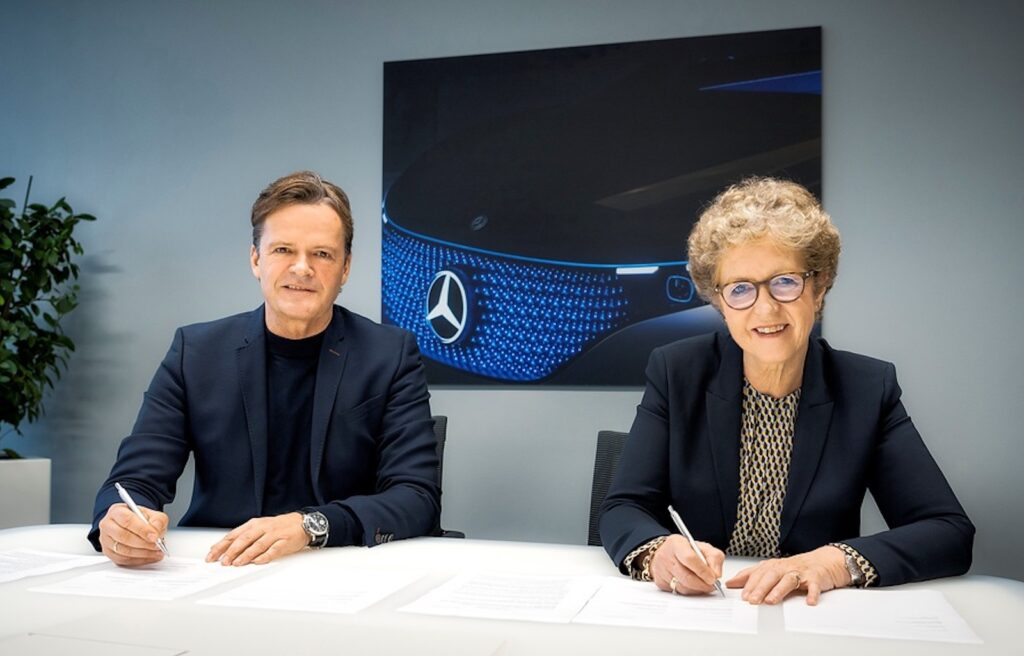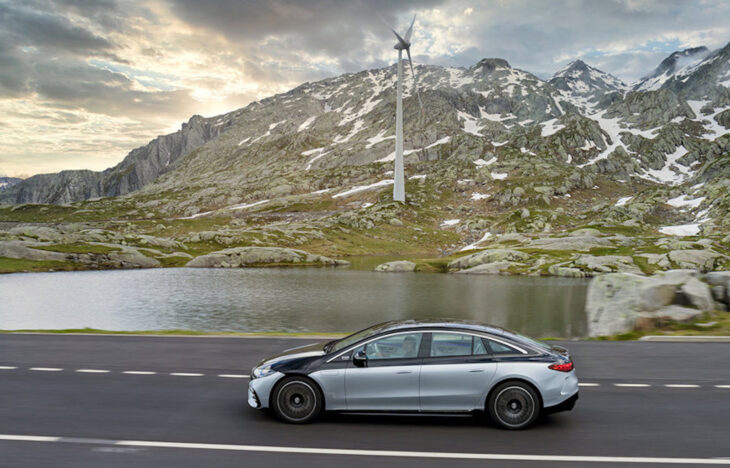Hydro and Mercedes-Benz are working on a joint technology roadmap to develop aluminum solutions approved for automotive applications with a CO2 footprint below 3.0 kgCO2/kg Al. The mutual ambition is to approach near-zero aluminum by 2030.
Hydro has been supplying Mercedes-Benz with aluminum components for many years, and the aluminum supplier will deliver its first volumes of aluminum with a footprint below 3.0 kg CO2/kg Al (Hydro REDUXA 3.0) to Mercedes-Benz in 2023. The product will be introduced to a range of Mercedes-Benz models including their EQ models.
“Mercedes-Benz ambition of making their entire fleet of new passenger cars CO2 neutral by 2039 matches Hydro’s ambition to deliver industrial scale zero-carbon aluminum by 2030,” said Hilde Merete Aasheim, president and CEO, Hydro. “Partnerships and collaboration in the value chains can accelerate technology developments needed to reduce emissions, and we are excited to have Mercedes-Benz joining us on our path to zero-carbon aluminum.”
With this partnership, Mercedes-Benz and Hydro will collaborate and further research how low-carbon and recycled aluminum solutions can be used in vehicles. The objective is to utilize the full potential of aluminum as a low-carbon solution in modern vehicles.

Markus Schaefer, member of the board of management of Mercedes-Benz Group AG and chief technology officer responsible for Research & Development and Procurement, and Hilde Aasheim, president and CEO of Norsk Hydro.
A New Level of Reduced CO2
Currently, Hydro already supplies Mercedes-Benz with CO₂ reduced aluminum for its foundry in Stuttgart, Mettingen, Germany. This latest strategic partnership raises the cooperation to a new level to optimize decarbonization processes for aluminum used in vehicle manufacturing. The first testing material made of further CO₂ reduced aluminum from Hydro in Norway with a CO₂ footprint reduction of almost 70% is already expected for next year. Moreover, Mercedes-Benz and Hydro are not only looking into further reduction of emissions, but are also aiming to reduce the use of primary resources through increased use of secondary materials from post-consumer scrap.
Part of Mercedes-Benz’s “Ambition2039″ sustainable business strategy is the focus is on the reduction of CO₂ emissions, as well as the responsible use of resources along the entire supply chain. In close cooperation with its suppliers, the Stuttgart-based luxury carmaker is working on levers for the consistent reduction of CO₂ and is seeking to significantly reduce the input of primary materials. Additionally, the car maker is retooling its supply chain to focus on the prevention and reduction of CO₂ emissions rather than through offsetting.
Increasing the use of recycled material in the OEM’s automobiles plays a major role for realizing further CO₂ reductions. Producing aluminum by using secondary material requires only 5% of energy when compared to primary aluminum production. As part of the collaboration, Mercedes-Benz and Hydro will look at taking their efforts one step further by exploring how to implement a closed-loop-recycling system.
“Aluminum is becoming increasingly important as a light weight material in electric vehicles,” said Markus Schäfer, member of the board of management of Mercedes-Benz Group AG and chief technology officer, Development & Procurement. “We are intensively working with our partners on finding levers to lower CO2 emissions in the aluminum supply chain. Therefore, I am very happy that we now join forces with Hydro as a long standing expert in producing renewable energies to tackle one of the biggest challenges in the automotive industry. This is an important signal to accelerate change in the aluminum industry and increase the availability of low-carbon aluminum.”

